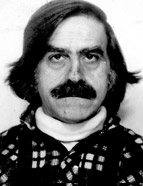

This was the third, final, substantial part of his intellectual and life trajectory (1974-1993). In a country which had just ceased to be a dictatorship, A. J. Saraiva did not enjoy a peaceful, conflict-free environment in certain dimensions of his teaching career or in his public activities. He eventually left the Universidade Nova [New University], his first haven, to go to the Faculdade de Letras de Lisboa (Clássica) [the University of Arts of Lisbon (a.k.a. Classic] where he found some stability as a professor but where he soon sensed the foreboding wind of adversity. This was the very same school he had abandoned in 1943, under the afore-mentioned conditions, and where, in January 1974, he had been awarded a doctorate Honoris Causa, superfluous in his case. In the politically troubled period of the new regime, A.J. Saraiva was elected president of the Conselho Directivo [Governing Board] for a one-year mandate (1976-1977). He remained at the Faculdade de Letras until he retired in 1987 with no other responsibility than to teach and supervise those undertaking master and doctoral degrees.
In a country finally released from suffocating authority and seeking to find its own feet in democracy – despite being subjected to new forms of ideological repression – Saraiva’s ingrained anti-conformist mechanism soon prompted him to rebel against mainstream political opinion and challenge the mythology of that very revolution with unprecedented formal bluntness and argumentative fearlessness, particularly as far as mass nationalisations and Portugal’s political and military presence in the overseas territories were concerned. His libel, decrying how the new regime had handled the decolonisation process of the Portuguese empire, gave rise to violent reactions in several of the more left-wing social sectors and within the military group involved in the revolution. Relying on the weight of his widely acknowledged intellectual and civic authority, Saraiva, at the time, was the embodiment of critical national consciousness and very much concerned with Portugalidade [Portugueseness, the true essence of Portugal], a widely discussed theme in the 20th century. The compilation of Saraiva’s texts in Filhos de Saturno [Saturn’s Children] (1980) are a testament to his blunt newspaper articles during Portugal's troubled post-revolution period. His warnings of the threat of a new, more dogmatic, totalitarian autocracy are particularly noteworthy. Occasionally, in some of his writings, he was unrestrained, effectively distancing himself from an objective social and historical analysis and from a multifaceted view, becoming caught up in the reductive dichotomy of the most heated ideological combat. At the time, it must be said, this latter dimension overrode his other features, undermining any serene dispassionate disposition. Yet in such critical situations, surely the militant praxis falls to the ideologist, not to the historian. And it was the urgency of the ideological combat that spurred him.
